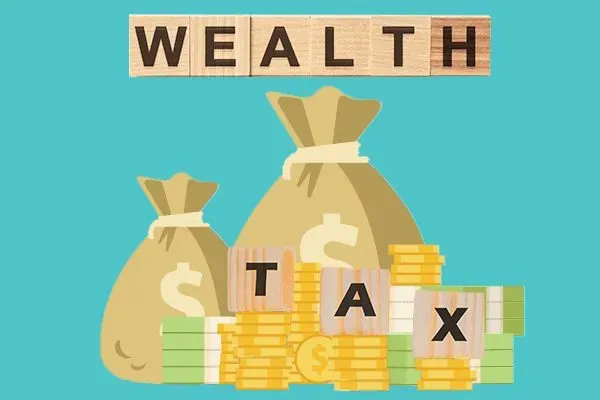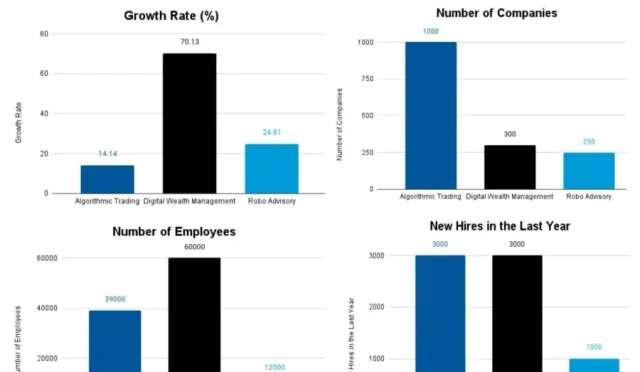Wealth tax has emerged as a crucial topic in the discourse surrounding the UK’s financial future, especially as the chancellor grapples with mounting budgetary pressures. With estimates suggesting a need to find between £25 billion and £50 billion, Rachel Reeves is under immense scrutiny to implement effective taxation reforms. As the Labour Party seeks to navigate its tax policy without increasing income tax, national insurance, or VAT, wealth tax could provide a viable solution for addressing inequality and taxation. Calls for property tax reform in the UK also intersect with the need for an effective wealth tax, targeting the increasing financial disparities among citizens. By levying progressive taxes on the wealthiest, the government can potentially raise substantial revenue while directly addressing the pressing issue of inequality in the nation.
The concept of a wealth tax, often referred to as an asset tax or net worth tax, has become increasingly pertinent in economic discussions. As Rachel Reeves aims to enact significant taxation measures, alternative approaches to traditional property taxes are being explored to close the fiscal deficit. The Labour Party’s strategy emphasizes the importance of addressing economic disparities and the distribution of wealth, particularly among the highest earners. With the proposed property tax reform in the UK, the goal is to create a more equitable tax system that mitigates inequality and properly finances public services. In this context, wealth taxes represent a progressive solution for a fairer economic landscape, aligning with global trends in wealth redistribution.
The Case for a Wealth Tax in the UK
Rachel Reeves faces a daunting challenge in securing substantial funds for the UK’s public services without increasing income tax, national insurance, or VAT. In this context, a wealth tax emerges as a compelling solution. By implementing a modest annual levy on net wealth exceeding £10 million, the government could tap into a revenue stream projected to raise over £24 billion each year. This approach not only addresses financial needs but also aligns with public sentiment; polls indicate that a significant majority of the population supports a wealth tax. Thus, this policy could foster a sense of fairness and equity within the tax system.
Moreover, focusing on a wealth tax can help rebalance the UK’s economy, which has skewed excessively towards the richest households. According to research by the Resolution Foundation, the affluent tend to hold a large portion of their wealth in non-property assets, such as stocks and bonds. Therefore, a wealth tax is not just a corrective measure for property-based disparities; it encapsulates a broader approach to taxation that could effectively tackle wealth inequality. By broadening the base of taxable assets, the government can more equitably distribute the fiscal burden, ensuring that affluent individuals contribute their fair share towards societal needs.
Challenges in Property Tax Reform
While the necessity for property tax reform in the UK is widely recognized, the proposals currently being discussed present various complications. Suggestions to replace council tax with a local proportional property tax or implement a capital gains tax on primary residences are not only controversial but may also complicate the housing market further. For example, introducing a capital gains tax on homes valued over £1.5 million risks disincentivizing homeowners from selling, potentially trapping older generations in properties that no longer meet their needs, ultimately stymying mobility for younger families.
In addition, proposals for new property taxes, such as those targeting homes sold for over £500,000, need thorough feasibility studies to assess their impact. The lack of clarity on how these taxes differ substantively from existing stamp duties raises concerns among property owners and potential buyers alike. Without careful planning and a deeper understanding of the socio-economic landscape, these new taxes could inadvertently exacerbate existing inequalities, particularly in high-value areas like London, where property ownership is already out of reach for many.
Rachel Reeves and Labour Party Tax Policy
Rachel Reeves stands at a crossroads concerning the Labour Party’s tax policy; her decisions could be pivotal for the upcoming election cycle. The manifesto commitments impose significant constraints, preventing an increase in the primary taxes, yet the urgency for money necessitates innovative thinking. Tax reforms should align with the Labour Party’s principles of fairness and social justice, allowing them to stay true to their electoral promises while addressing the urgent need for funding in public services.
Implementing a wealth tax could position Labour as champions of the common good, appealing to both traditional supporters and potential swing voters. Labour’s tax strategy must extend beyond property taxes to include measures that target broader wealth disparities within the UK, resonating with their historical commitment to advocating for the middle and working classes. By demonstrating a clear plan that includes a wealth tax alongside property reform, Reeves can consolidate her party’s stance and respond effectively to the electorate’s demands for effective and fair taxation.
Navigating Inequality and Taxation Reform
Inequality in the UK has intensified over recent years, posing significant challenges for tax reform strategies. Current proposals predominantly focus on property taxation, which overlooks the broader spectrum of wealth held by the richest citizens. The success of taxation reforms hinges on addressing not just property wealth but all assets, including financial investments that form the bulk of the wealth for the top percentile. This necessitates a more comprehensive framework that counters the disproportionate strain placed on lower-income residents while ensuring wealthier citizens contribute equitably.
Taxation should be seen as a tool for democratic fairness, enabling investments in social infrastructure that benefit everyone, especially those who have historically been excluded. Without tackling wealth inequality at its roots, through mechanisms like a wealth tax, reforms risk perpetuating existing disparities while fostering public frustration. The government must pivot from patchwork policies to a strategic, long-term vision that encompasses equitable wealth distribution through well-defined taxation approaches.
Public Sentiment Around Wealth Taxes
Polling data reveals that public sentiment in the UK increasingly favors a wealth tax, showing broad support that spans political affiliations, including significant backing from Reform UK voters. This demonstrates a growing recognition of the need for a taxation system that acknowledges and addresses inequality. The widespread approval of a wealth tax signals an opportunity for policymakers to galvanize public support by framing such measures as a necessary step towards fostering a fairer and more just economy.
The popularity of wealth taxes also underscores the public’s desire for responsible governance that prioritizes collective welfare over individual profit. As citizens see the tangible benefits of funding public services through wealth contributions, it can shift the narrative around taxes from a burden to an investment in the nation’s future. Engaging the populace through clear communication about the necessity and benefits of a wealth tax is crucial for any successful implementation, ensuring that reforms are rooted in public trust and transparency.
Lessons from European Wealth Taxes
Learning from European countries that have successfully implemented wealth taxes can provide valuable insights for the UK. Countries like France and Spain have established models that effectively incorporate wealth into their tax systems without causing significant capital flight, as critics often fear. By analyzing these case studies, UK policymakers can identify practical strategies and best practices that minimize administrative challenges and ensure compliance without alienating wealth holders.
Furthermore, experiences from these nations illustrate that well-designed wealth taxes can function alongside existing taxation regimes, thereby creating a balanced system that contributes to revenue without stifling economic growth. For Rachel Reeves, examining how effective communication and outreach were employed in these countries can help prepare for introducing similar policies in the UK context. Understanding the dynamics of public perception in Europe relates directly to the task of building consensus on wealth taxation back home.
Long-Term Vision for Tax Reform
For Rachel Reeves and the Labour Party, aspirations for a long-term vision surrounding tax reform must align with the socio-economic realities of modern Britain. Short-term fixes are insufficient; a comprehensive approach that encompasses a wealth tax alongside other reforms is essential for sustainable economic growth and equity. Crafting a tax policy that resonates with citizens’ needs while addressing systemic issues of wealth disparity should be paramount, ensuring every sector pays its fair share.
Long-term tax reform must also consider the evolving economic landscape, where traditional revenue streams may falter in response to technological advancements and changing business models. By embracing a forward-thinking approach to taxation—one that incorporates elements of fairness, inclusivity, and sustainability—Reeves can champion a reform agenda that not only solves immediate fiscal challenges but also lays the groundwork for an equitable economic future in the UK.
Impacts of Tax Policy on Public Services
Tax policy has a profound impact on the provision of public services, particularly in a climate where funding is becoming increasingly scarce. Without effective tax revenue strategies, essential services such as healthcare, education, and social welfare risk suffering from underfunding. A wealth tax could help alleviate these issues by funneling critical resources into these sectors, enabling the government to restore and enhance public services that have been eroded over recent years.
Investing in public services is not merely a financial obligation; it is essential for maintaining social cohesion and promoting economic stability. A well-structured wealth tax can contribute to these goals by offering a predictable revenue stream that allows for strategic funding initiatives. By prioritizing equitable tax policies that bolster public service investments, the government can ensure that all citizens benefit from a more robust and fair economic framework.
The Future of Taxation in the UK
As the discourse around taxation evolves, the potential introduction of a wealth tax could signify a pivotal moment in how the UK approaches fiscal policy. Moving away from the traditional reliance on income and property taxes towards a more holistic perspective that encompasses total wealth could reshape the landscape of taxation for years to come. This shift would not only address immediate financial pressures but also set a precedent for future reforms that prioritize fairness and equity.
Envisioning the future of taxation in the UK involves recognizing the complexities of wealth, property, and public opinion. By engaging in extensive dialogue with constituents and stakeholders, Reeves can navigate the intricacies of reform that honors the needs of everyday citizens while addressing the rampant inequalities that have taken root in society. Ultimately, fostering a taxation culture that values comprehensive wealth measurement over simplistic property-focused taxation could pave the way for a more sustainable economic future.
Frequently Asked Questions
What is the UK wealth tax proposed by Rachel Reeves?
The UK wealth tax proposed by Rachel Reeves is a plan to implement a modest annual levy of 2% on individual net wealth exceeding £10 million. This taxation aims to address rising inequality and raise substantial revenue, estimated at over £24 billion annually, by including all assets like stocks, bonds, and property, while subtracting debts.
How would a wealth tax affect inequality in the UK?
A wealth tax would help reduce inequality in the UK by targeting the wealthiest individuals, who are typically not significantly affected by property taxes. By taxing total net wealth, including investments beyond just properties, it aims to redistribute wealth and improve financial equity among citizens.
What are the potential challenges of implementing a wealth tax in the UK?
Implementing a wealth tax in the UK may face challenges like determining the accurate net worth of wealthy individuals, administrative hurdles, and potential pushback from those opposing wealth redistribution. However, with increased resources for HMRC to assess wealth accurately, these challenges could be addressed.
How does the proposed property tax reform relate to the wealth tax discussion?
The proposed property tax reform looks to replace outdated council tax and stamp duty with fairer systems, but it risks burdening ordinary homeowners. Unlike these reforms, a wealth tax directly targets total wealth, thus potentially alleviating pressure on property owners by addressing wealth inequality more broadly.
What is the Labour party’s tax policy regarding the wealth tax?
The Labour party’s tax policy under Rachel Reeves suggests implementing a wealth tax as a viable option to generate revenue without raising income tax, national insurance, or VAT. The party aims to enhance fairness in taxation and reduce financial inequalities, responding to public support for such measures.
How does public opinion affect the potential for a wealth tax in the UK?
Public opinion significantly favors the implementation of a wealth tax, with polls indicating that around 75% of the population supports it, including some supporters from other parties like Reform UK. This consensus may influence political decisions and encourage the government to adopt such measures for equity.
What lessons can the UK learn from European wealth taxes?
The UK can learn from the experiences of European countries with wealth taxes, observing that well-designed wealth taxes have not caused the capital flight that critics fear. By studying their models, the UK can potentially avoid pitfalls and craft an effective wealth tax system that addresses inequalities.
What are the implications of a wealth tax on the housing market in the UK?
A wealth tax could positively impact the UK housing market by incentivizing homeowners to downsize or sell their properties, thereby improving market fluidity. In contrast, negative impacts could arise if property taxes, as currently proposed, deter mobility by trapping owners in homes too large for their needs.
What alternatives to wealth tax are being discussed in the UK?
Alternatives being discussed instead of a wealth tax include reforms to inheritance tax, replacing council tax with local proportional property taxes, and implementing capital gains tax on primary residences. However, these alternatives may not effectively address the broader issues of wealth inequality like a direct wealth tax would.
How would Rachel Reeves’ wealth tax proposal affect government revenue?
Rachel Reeves’ wealth tax proposal is estimated to generate over £24 billion annually, providing a significant boost to government revenue. This revenue can be utilized to fund public services, address economic disparities, and assist in improving living standards for citizens across the UK.
| Key Point | Details |
|---|---|
| Need for Cash | Rachel Reeves needs to find £25-£50bn for public services. |
| Wealth Tax Viability | A well-designed wealth tax could raise over £24bn annually. |
| Political Support | 75% of the public, including some Reform UK voters, support a wealth tax. |
| Inequality Focus | Targeting wealth over 10m; applies to all net wealth including stocks and property. |
| Reforming Wealth Taxes | Simplifies wealth collection and targets the richest effectively. |
| Fairness in Taxation | A wealth tax could improve perceptions of fairness, helping to combat wealth inequality. |
Summary
Wealth tax stands as a crucial option for Rachel Reeves as she grapples with the urgent need to fund essential public services. Given the pressing budgetary constraints and the lack of viable alternatives without risking political support, a wealth tax emerges not only as a feasible solution but also as a means to address rising inequality in the UK. By targeting substantial wealth and garnering public support, it offers a pathway to restore essential services and enhance fairness in the tax system.








